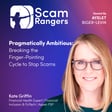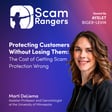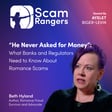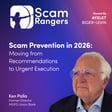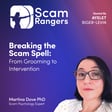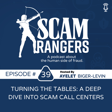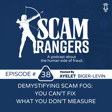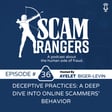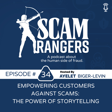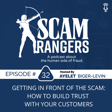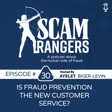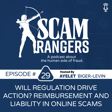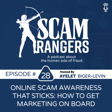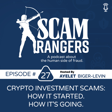
Coordinated Action: The Key to a National Strategy Against Scams, A conversation with Ken Westbrook, CEO and Founder of Stop Scams Alliance
In this episode of Scam Rangers, we sit down with Ken Westbrook, a former member of the US intelligence community, as he shares the story that sparked his mission to combat online scams. Ken opens up about his mother's unfortunate encounter with online criminals and how it inspired him to take action.
With the founding of Stop Scams Alliance, Ken discusses his efforts to drive change at the national level, drawing inspiration from successful initiatives implemented by the British government. He outlines the strategies employed across the pond and advocates for similar action within the United States, emphasizing the importance of government intervention in combating cybercrime.
Join us as we explore Ken Westbrook's journey from personal tragedy to public advocacy, shedding light on the pressing issue of online scams and the collective effort needed to address it effectively. This episode serves as a call to action for individuals and policymakers alike, urging everyone to unite in the fight against digital deception.
This podcast is hosted by Ayelet Biger-Levin who spent the last 15 years building technology to help financial institutions authenticate their customers and identify fraud. She believes that when it comes to scams, the story starts well before the transaction. She has created this podcast to talk about the human side of scams, and to learn from people who have decided to dedicate their lives to speaking up on behalf of scam victims and who take action to solve this problem. Be sure to follow her on LinkedIn and reach out to learn about her additional activities in this space. https://www.linkedin.com/in/ayelet-biger-levin/
ScamRanger: https://scamranger.ai/
Resources:
Stop Scams Alliance: https://www.stopscamsalliance.org/
Op Ed New York Times:
https://www.washingtonpost.com/opinions/2024/03/25/scams-ruin-american-lives-present/
Stop Scams UK: https://stopscamsuk.org.uk/
UK Strategy to sop scams: https://www.gov.uk/government/news/new-blueprint-to-protect-public-from-scammers
Australia strategy to stop scams:
